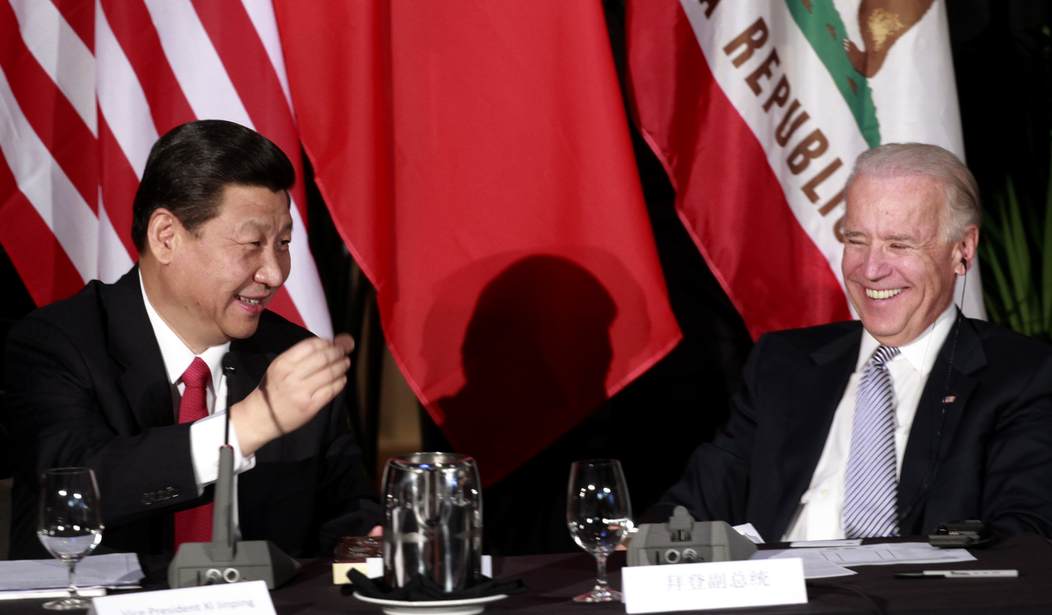Obamanomics — borrowed from FDR and since resurrected as Bidenomics — was the fine art of taking an economy that had been knocked on its back, firmly stepping on its throat with the jackboot of regulation, and bashing it repeatedly on the head with a giant sackful of money while shouting, "WHY WON'T YOU DO ANYTHING?"
While we're just four weeks out from learning whether Obamanomics will be rebranded once more as Kamalanomics, our friends in Communist China are learning the hard way what it's like to be ruled by truly ambitious Democrats. Or Communists. It's all so confusing sometimes.
The point is that China's massive economy has been flat on its back for a while now, thanks in no small part to strongman Xi Jinping's determination to restore Communist control. His severe COVID lockdowns only made things worse, convincing consumers that they'd better stuff all their money under the proverbial mattress.
This is where classic New Deal/Obamanomics comes in.
The New York Times breathlessly reported Monday that "China’s Policy Reversal Sparks ‘Mind Boggling’ Stock Rally." The report opened with, "Just a few weeks ago, many investors in China’s stock markets were ready to give up and eager to sell. Then late last month, traders rushed in to make bullish bets after the government’s leaders announced a series of steps to stimulate China’s faltering economy."
Well, that didn't last very long: US-listed shares of Chinese firms slide as stimulus optimism ebbs. "U.S.-listed shares of Chinese companies fell on Tuesday, tracking an underwhelming start for Shanghai markets after a week-long break, as investors worried over the lack of new stimulus measures to power an economic recovery."
Lack? Is Reuters kidding us?
Not really.
Chinese investors had been hoping for even more information "about how the government plans to support economic growth but [Tuesday's] announcement gave little in the way of details." Imagine a heroin junkie who'd been thought they'd get three free fixes but now they'll only get one or two.
Peter St. Onge has the big picture, describing how Beijing is "slashing downpayment requirements on houses, opening a special credit facility so banks and hedge funds can gamble on stocks, and cutting the reserve requirements for banks — meaning banks can raid their vaults and go on a lending spree."
China's problem — much like ours — isn't that money is too scarce or that the government isn't spending enough. China's problem is Xi's hostile business climate.
A report out last month showed that Xi's commie crackdown has crushed innovation:
Since arriving in China, meetings founders and VCs have left me with a very dim view of the current state affairs.
— Eleanor Olcott (@EleanorOlcott) September 12, 2024
Things are so bad.
In 2018, 51,302 new startups were founded. Last year, that number was down to 1,202.
It took a while for that number to sink in. pic.twitter.com/oCeO2sAssc
IFP's Alec Stapp noted that people who start new businesses "are also now required to be personally liable for their company’s loans... [it's] hard to imagine why anyone would start a company under these conditions."
What people can do, however, is pour more money into China's already overgrown real estate sector and inflate another housing bubble that, when it pops, will require yet another round of stimulus.
Lather, rinse, repeat.
We keep doing it here. They keep doing it there. It's impossible to say whose country has the worst elites, but it's depressing to know that they're all reading from the same discredited playbook.
Recommended: Big Brother Is Watching Your Car, Your License Plate, Bumper Stickers, Yard Signs...
P.S. If you aren't already a VIP supporter, please consider helping us keep independent news and analysis alive, and don't forget our 50% off SAVEAMERICA promo code.










Join the conversation as a VIP Member